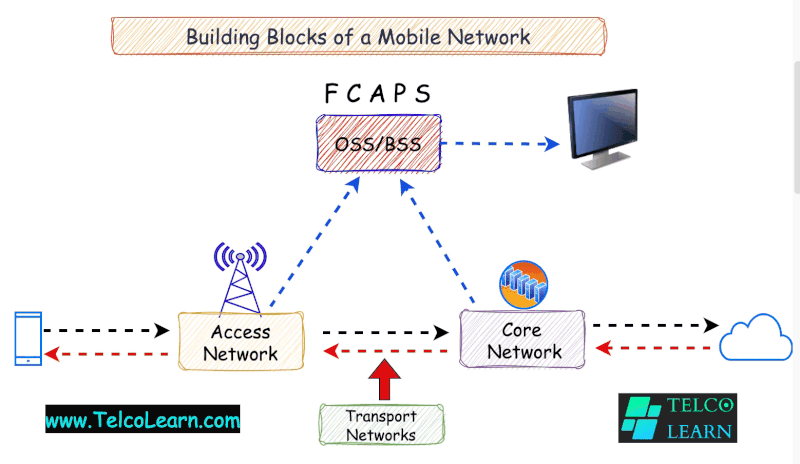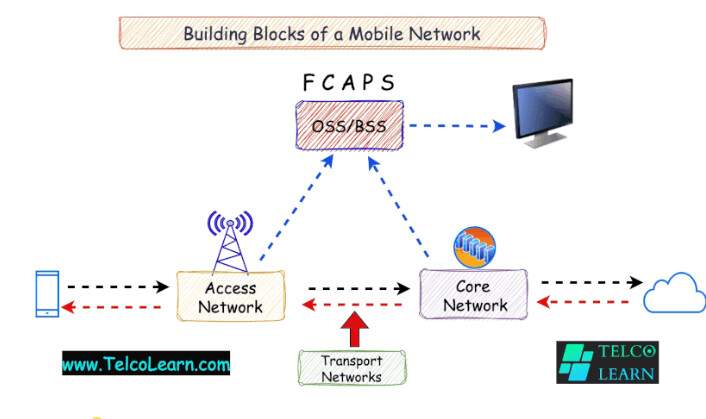𝑨𝒄𝒄𝒆𝒔𝒔 𝑵𝒆𝒕𝒘𝒐𝒓𝒌𝒔:
Access networks serve as the interface between mobile devices and the broader telecommunications infrastructure. They facilitate the connection of user equipment (UE) to the mobile network. Access networks include Radio Access Networks (RAN) for wireless communication, which encompasses technologies like LTE (Long-Term Evolution) and 5G NR (New Radio). RAN manages the radio resources, handles handovers, and provides the last-mile connectivity to mobile devices.
𝑪𝒐𝒓𝒆 𝑵𝒆𝒕𝒘𝒐𝒓𝒌𝒔:
Core networks form the service backbone of mobile telecommunications, handling the central intelligence and control functions. The core network manages services such as voice and data routing, authentication, and connection management. It includes elements like the Mobile Switching Center (MSC), Serving GPRS Support Node (SGSN), and Packet Data Network Gateway (PGW). In the context of 5G, the core network evolves with technologies like the 5G Core (5GC), enabling features such as network slicing and edge computing.
𝑻𝒓𝒂𝒏𝒔𝒑𝒐𝒓𝒕 𝑵𝒆𝒕𝒘𝒐𝒓𝒌𝒔:
Transport networks are responsible for carrying data between different elements of the mobile network infrastructure. They provide the high-capacity links needed for efficient and reliable communication. This includes the backhaul network that connects the RAN to the core network, as well as the front-haul network for interconnecting various RAN components. Transport networks use technologies such as fiber optics, microwave links, and Ethernet to ensure the swift and secure movement of data across the network.
𝑶𝑺𝑺/𝑩𝑺𝑺 (𝑶𝒑𝒆𝒓𝒂𝒕𝒊𝒐𝒏𝒂𝒍 𝑺𝒖𝒑𝒑𝒐𝒓𝒕 𝑺𝒚𝒔𝒕𝒆𝒎/𝑩𝒖𝒔𝒊𝒏𝒆𝒔𝒔 𝑺𝒖𝒑𝒑𝒐𝒓𝒕 𝑺𝒚𝒔𝒕𝒆𝒎):
OSS/BSS are crucial for the overall management and operation of mobile networks.OSS (Operational Support System): Encompasses tools and systems that monitor, manage, and troubleshoot the network infrastructure. It includes network management, fault detection, and performance monitoring systems.
BSS (Business Support System): Focuses on the business and customer-facing aspects, handling tasks like billing, customer support, and service provisioning. BSS ensures the smooth interaction between the service provider and the end-users, managing subscriptions, payments, and customer relationships.
These building blocks collectively enable the deployment, operation, and optimization of mobile networks, ensuring seamless connectivity and delivering a range of services to end-users. The integration and efficient functioning of these components are essential for a robust and reliable mobile communication ecosystem.

LinkedIn: ![]()
